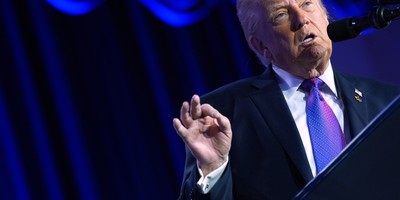Is "Toy Story 3" a parable for today's deep political discontent?
Think about it. A slick sloganeering teddy bear convinces a gaggle of beleaguered toys that he holds the key to a brighter future. The toys, longing for leadership after years of broken promises and incompetence, uncritically submit to the teddy bear's vision.
Before long, even non-Ivy Leaguers like Mr. Potato Head, Rex and Slinky catch on. All creeds of plaything are forced to sacrifice liberty and happiness for the collective good -- as imagined by a technocratic leader, his feckless vice-leader (a Ken doll) and their muscle (a giant baby doll).
First there is concern and then anger and then revolt. Even Barbie -- having shown no interest in political activism for more than 50 years -- unleashes the best line in the history of animated films: "Authority should derive from the consent of the governed, not from the threat of force!"
Naturally, that's the lesson the screenwriters for "Toy Story 3" were trying to convey to the American people. Though, admittedly, my 6-year-old had a somewhat different interpretation of Pixar's creation. Then again, she's a hopeless bleeding heart.
I, on the other hand, need this. Before children, a movie theater was a place for me to escape into flimsy narratives, hyper-violence and juvenile bromances.
Today? Is there no end to the foibles of humankind? Why, Daddy, do we have this ghastly habit of refusing to treat monsters and ogres as equals? Why won't humans let rats run restaurants? Why are we bigoted against superheroes, the elderly, chimps, bears, children, robots and aliens? Why do corporations destroy mom and pop outfits and ruin entire planets for kicks?
In light of most animated movies, the message of "Toy Story 3" appealed to me. And I would have allowed that my ideological interpretation was way off had I not read about a growing trend in popular culture -- namely commercials -- that seeks to tap into our tea party.
Recommended
In one spot, villainous redcoats are on the march -- ready, no doubt, to snatch more liberty from colonists -- when they are met head-on by a phalanx of Dodge Challengers with American flags flying. A narrator intones, "Here are a couple things America got right: cars and freedom."
This would have been the greatest commercial to hit television since Joe Isuzu was lying. But Chrysler is, as any genuine American already knows, a bailout recipient unqualified to preach the freedom agenda. (Though, it has been reported that the car company, aware of this duplicity, tried to save some dough by using costumes left over from a Mel Gibson movie -- doubtlessly "The Patriot" and presumably outfitted with real bloodstains.)
The burst of new ads featuring Founding Fathers has prompted much discussion. "Marketing consultants," a Washington Post piece states, "say the ad is one indication that the movement's anger and energy have become part of the cultural conversation, making it a natural target for admakers."
Yikes. "Cars and freedom" are an indication that "anger" is driving a national conversation? Doesn't everyone think that cars and -- at the very least -- freedom are good ideas?
It's not surprising that animation and commercials are the most sensitive to public trends. It was the mild poke at religious fundamentalism by "South Park" that illustrated how dangerous religious extremism can be to free expression. "Family Guy" and "The Simpsons" regularly opine on sensitive areas of race, religion and culture that others never would dare touch.
Perhaps inadvertently, it was Audi's "Green Police" Super Bowl spot -- featuring law enforcement officials confiscating batteries and arresting enviro-scofflaws -- that most effectively poked fun at environmentalists.
It is a matter of time before concerns about liberty begin to filter into mainstream popular culture. The clues are everywhere; a remake of the greatest work of film in the 20th century, "Red Dawn," is under way, and so is a production of "Atlas Shrugged."
Is "Toy Story 3" part of that movement? Let me engage in a bit of wishful thinking and say: Of course it is.

























Join the conversation as a VIP Member